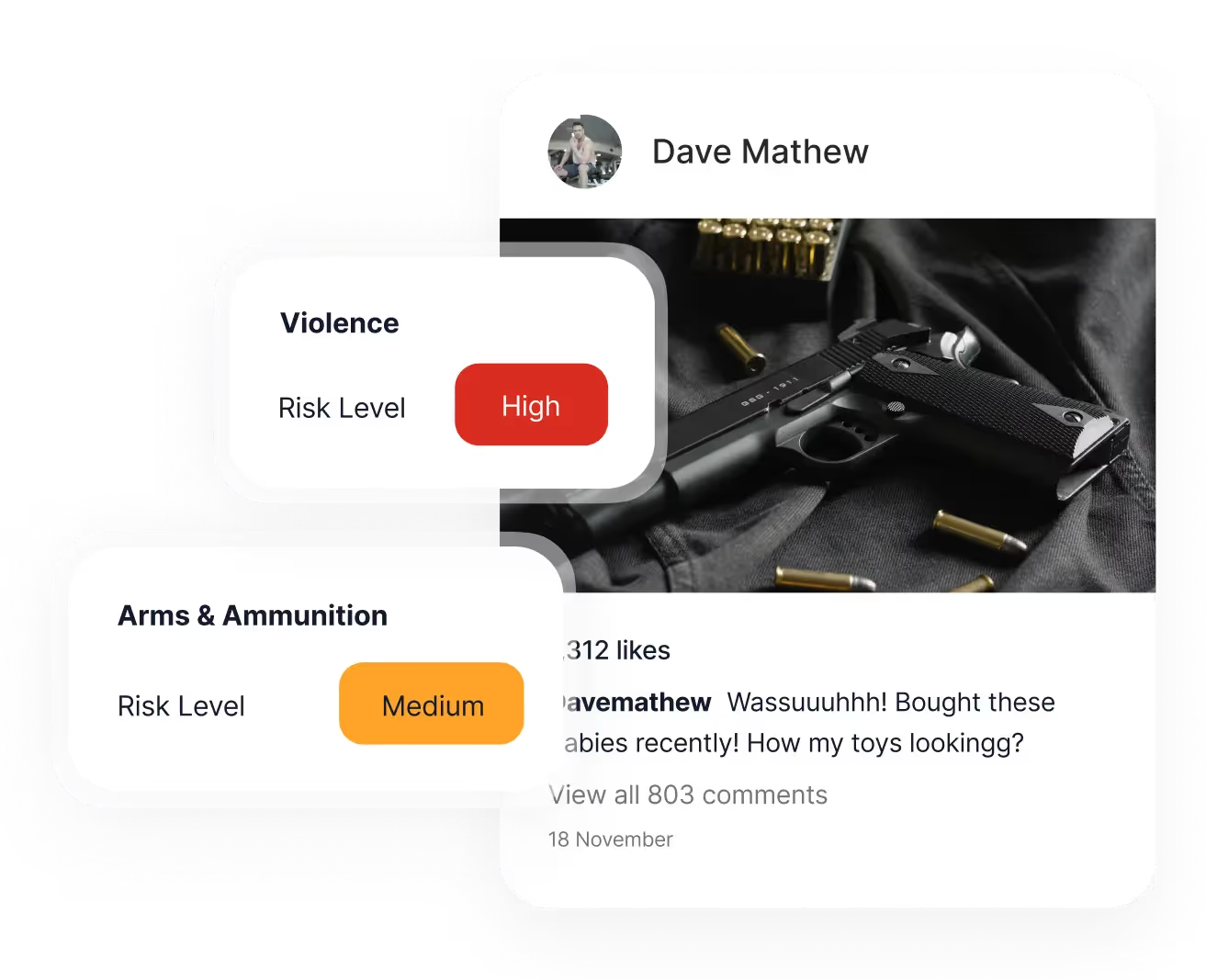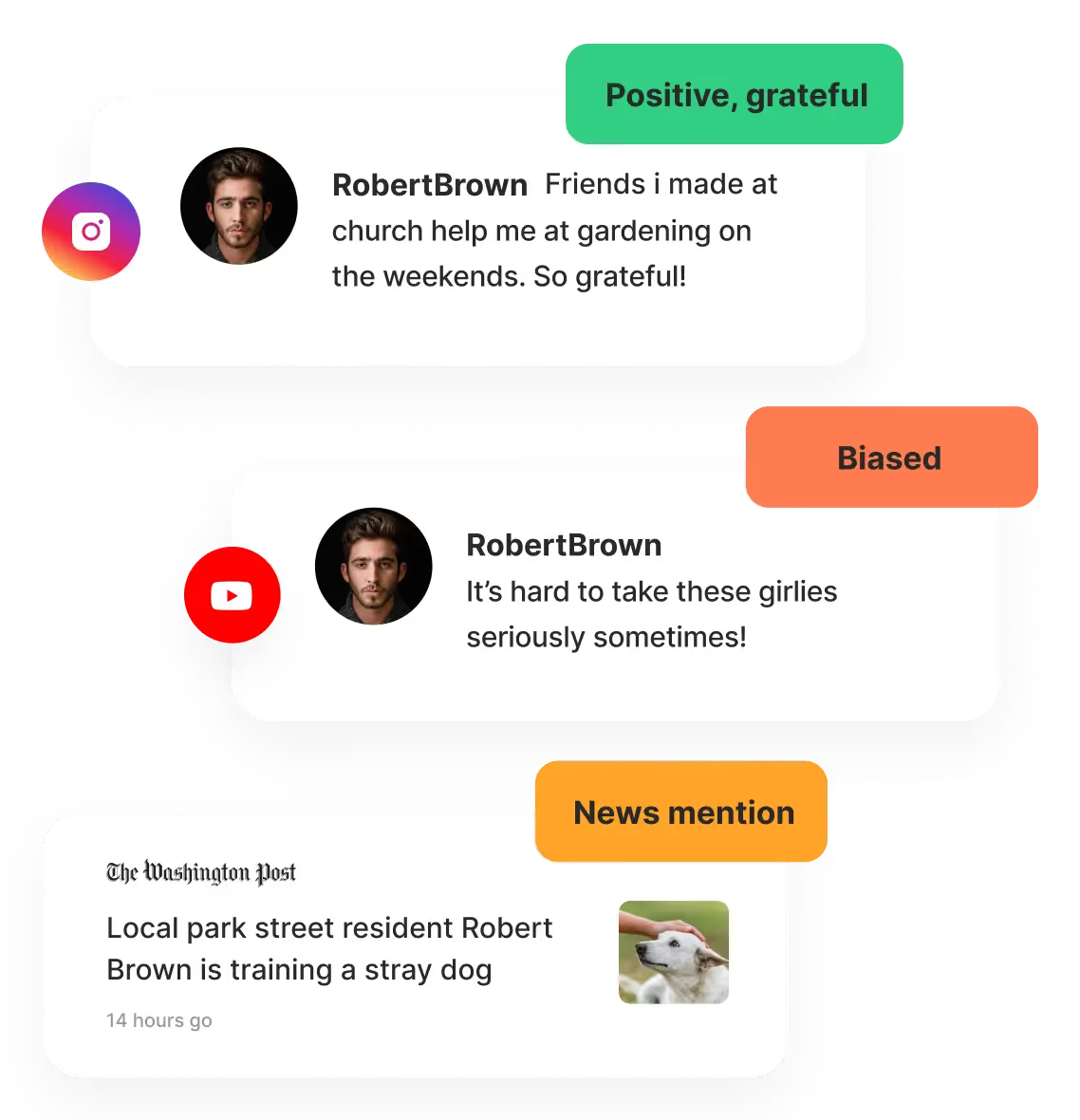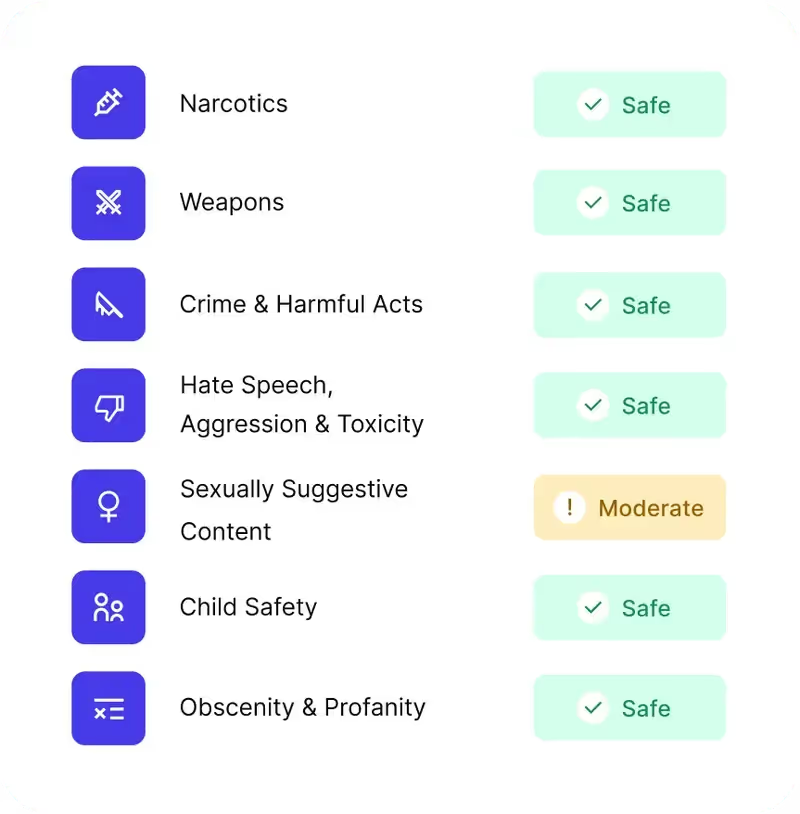According to a 2023 survey, 70% of employers admitted to screening candidates’ social media profiles before making a hiring decision, with 54% choosing not to hire a candidate based on their findings.
As the digital footprint of individuals continues to expand, social media screening has become an essential component of modern recruitment. It goes beyond traditional background checks, offering a more comprehensive view of a candidate’s suitability for a role. In a competitive job market, where cultural fit and brand alignment are increasingly prioritized, understanding a candidate’s online persona can make a significant difference in the hiring process. To ensure consistency and legal compliance, it is crucial for organizations to develop a comprehensive social media screening policy.
What is a Social Media Background Check?
Social media screening is the process of examining a candidate’s online presence to gather insights that go beyond the traditional resume. This includes conducting a social media background check by reviewing their public social media accounts, online interactions, and any digital content they have created or been mentioned in. The goal is to gain a holistic view of the candidate’s character, lifestyle, and suitability for a role, which can help in making more informed hiring decisions.

Why Social Media Screening is Important in the Hiring Process?
Employers are increasingly turning to social media screening for several compelling reasons when evaluating job candidates:
- Insight into Personality and Values: Social media often reflects personal interests, activities, and interactions that showcase a candidate’s personality and core values. Employers can assess whether a potential hire will align with their company’s culture and ethos.
- Understanding Professional Behavior: Social platforms like LinkedIn can reveal a candidate’s professional demeanor and how they interact within their industry. Posts, comments, and shared content can indicate a candidate’s professional maturity and respect for others in professional settings.
- Identifying Potential Risks: Screening can highlight red flags such as inappropriate content, discriminatory remarks, or other risky behaviors that could reflect poorly on the company or pose a future liability.
- Verifying Information: It also serves as a means to corroborate qualifications, experiences, and achievements listed on the resume, ensuring the accuracy of a candidate’s credentials.
Ethical and Legal Considerations
Privacy Issues and Consent
Privacy is a paramount concern in social media screening. Employers must navigate the delicate balance between gathering relevant information and respecting the privacy rights of candidates. It is essential for organizations to obtain explicit consent from candidates before conducting any form of social media review. This consent should be well-documented and should clearly explain what the screening involves and how the information will be used. Furthermore, companies should restrict their screening to information that is publicly available or pertinent to the job role, ensuring that they do not intrude unnecessarily into personal social media accounts.
Legal Frameworks Guiding Social Media Screening
Social media screening must comply with various legal frameworks designed to protect privacy and prevent discrimination. These include, but are not limited to, the General Data Protection Regulation (GDPR) in Europe, which mandates strict guidelines on data processing and transparency, and the Fair Credit Reporting Act (FCRA) in the United States, which sets standards for employment screening. Additionally, local employment laws may dictate what information can be considered in hiring decisions. Employers must be aware of and adhere to these laws to avoid legal repercussions and ensure fair hiring practices.
Addressing Potential Biases and Fairness in Screening to Avoid Discrimination Claims
The potential for bias in social media screening is significant, as personal biases can inadvertently influence the interpretation of social media content. To mitigate this, it is crucial to establish standardized procedures for what constitutes relevant and irrelevant information. Employers should train those conducting screenings to recognize and control their biases. Moreover, the use of automated tools like Phyllo, a social media screening tool, can help in providing a more objective analysis by consistently applying predetermined criteria to the information gathered. Such tools can also help ensure that all candidates are evaluated equally, based on the same benchmarks, thereby promoting fairness in the screening process.
By carefully considering these ethical and legal considerations, organizations can effectively use social media screening as a tool to enhance their hiring processes while maintaining high standards of fairness and compliance.
Challenges in Social Media Screening
Handling of Ambiguous or Contextless Information
One of the significant challenges in social media screening is interpreting ambiguous or contextless information that appears on a candidate’s social media profiles. Posts, comments, or images may lack clear context, which can lead to misinterpretation of the content's intent or meaning. Misinterpretations can adversely affect the screening outcome, potentially leading to unfair assessments of candidates.
Managing Volume and Relevance of Data
Social media platforms can contain vast amounts of data, much of which is irrelevant to a candidate's potential job performance. Sifting through this data to find pertinent information is time-consuming and labor-intensive. Additionally, the sheer volume of data increases the risk of overlooking critical information or getting overwhelmed by trivial details.
Balancing Personal and Professional Boundaries in Personal Social Media Accounts
Maintaining a clear distinction between personal and professional information is another challenge. Screeners must be cautious not to overstep by considering aspects of a candidate’s personal life that are irrelevant to their job capabilities or character as it relates to employment. This balance is crucial to respect privacy and avoid discrimination based on personal life choices, affiliations, or expressions.
How Phyllo Enhances the Screening Process
Phyllo enhances the social media screening process by streamlining and adding precision to what has traditionally been a challenging area of HR. By automating the initial stages of data collection and analysis, Phyllo allows HR professionals to focus on higher-level decision-making rather than getting bogged down in the details of data gathering. Here’s how Phyllo helps-
Automation and AI-Driven Analytics

Phyllo addresses these challenges through automation and AI-driven analytics that streamline the screening process. Its technology can automatically filter and prioritize data based on predefined criteria, focusing on content that is most relevant to the professional context. This reduces the burden of manual data sorting and minimizes the risk of human error.
Comprehensive Reporting Features

Phyllo generates comprehensive reports that summarize a candidate’s online presence in a structured and easy-to-understand format. These reports highlight key findings, categorize data types, and provide context where necessary, which aids in better interpretation of ambiguous information. This feature ensures that decision-makers receive all relevant insights without the clutter of irrelevant data.
Define Criteria and Risk Scores

Defining criteria and calculating risk scores provides a structured way to assess the safety and suitability of candidates, content, or influencers. By setting specific criteria, organizations can use algorithms to assign risk scores, offering a clear, objective measure of alignment with company standards. These scores, categorized by factors like violence or compliance, help identify potential issues and trigger actions when thresholds are exceeded. This approach ensures consistent, transparent decision-making in areas like hiring, content compliance, and influencer marketing.
By leveraging Phyllo’s capabilities, companies can overcome many of the inherent challenges in social media screening, ensuring a fair, efficient, and legally compliant process.
To Conclude-
Social media screening, now a staple in modern hiring practices, provides invaluable insights into candidates’ professional and personal lives, ensuring that only the most suitable individuals join your team. Phyllo stands at the forefront of this technology, offering advanced, AI-driven analytics and comprehensive reporting features that transform how organizations approach candidate screening.
With Phyllo, companies not only streamline the screening process but also ensure compliance with stringent legal and ethical standards, thereby safeguarding their reputation and operational integrity. By automating data collection and analysis, Phyllo allows HR professionals to focus on strategic decision-making, significantly enhancing recruitment efficiency and effectiveness. To ensure fairness and compliance, it is essential to conduct social media screenings in a structured manner, following a well-defined policy.
%20(1).webp)










.avif)
.avif)
.avif)